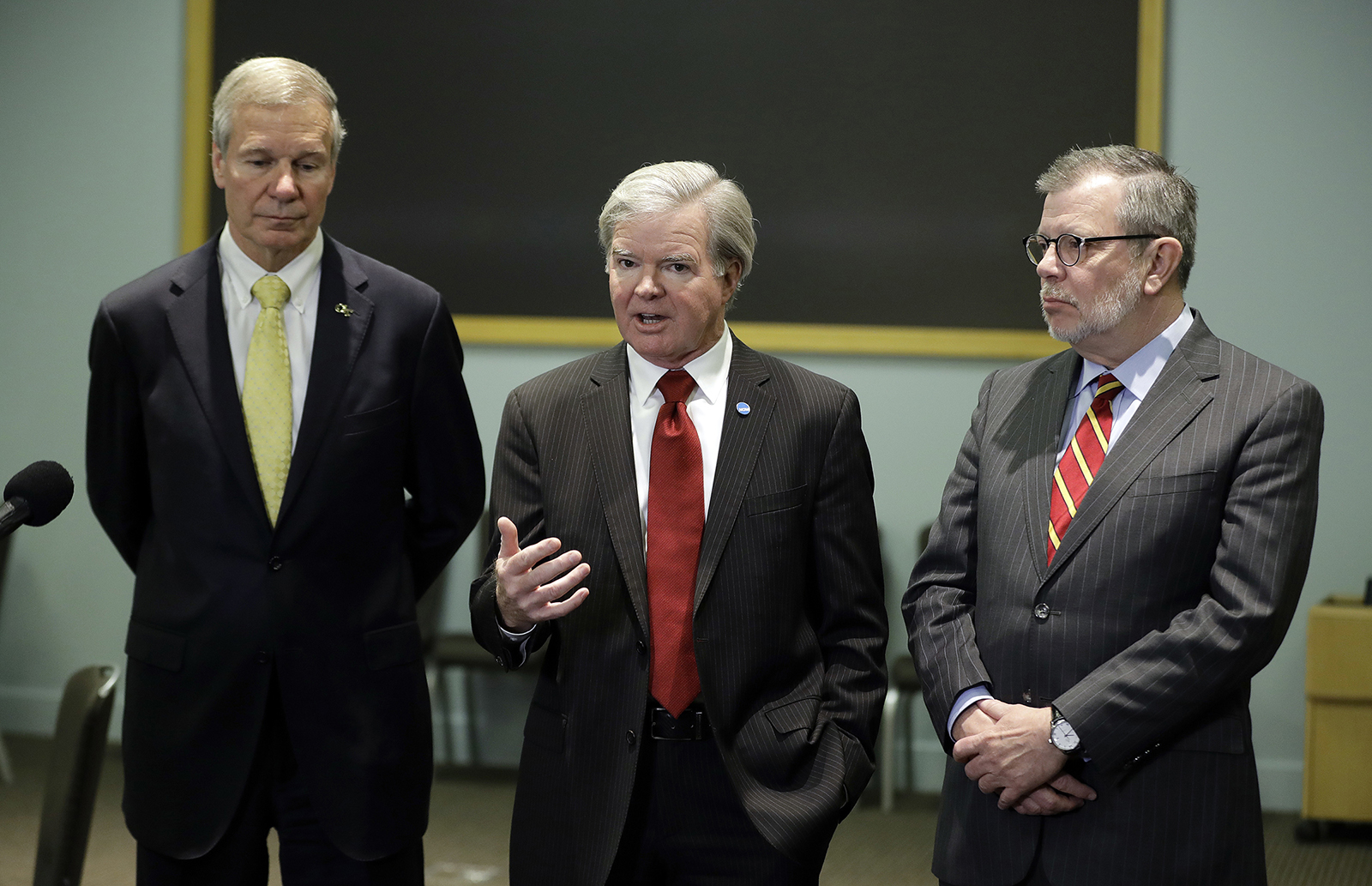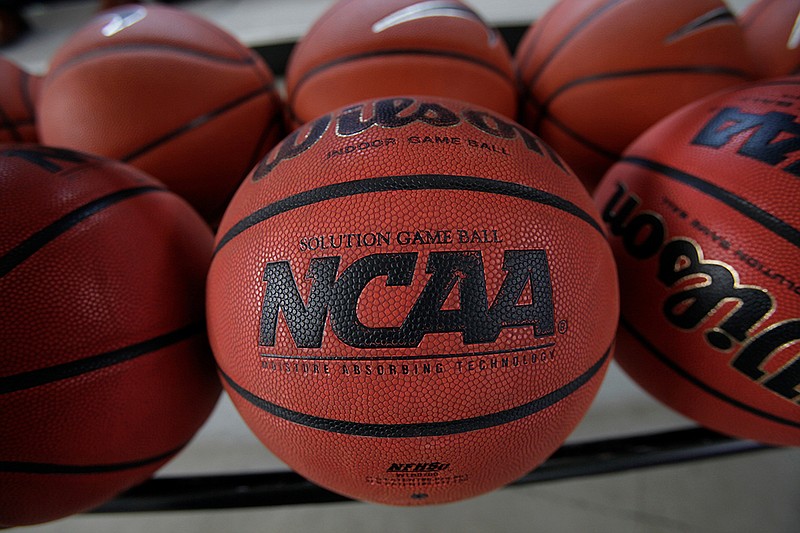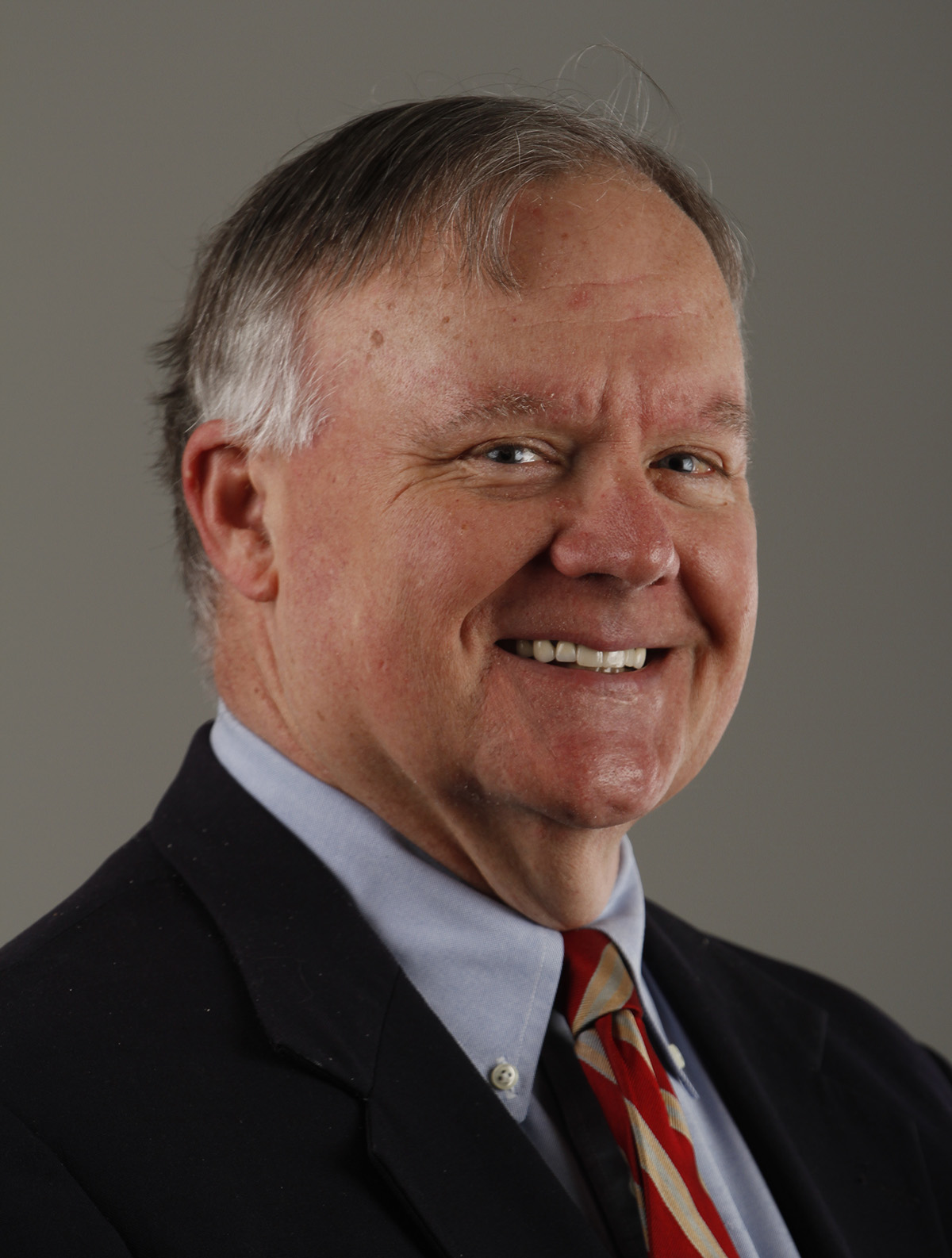Mark Emmert has finally thrown in the towel. Or is it the white flag of surrender? The National Collegiate Athletic Association's unclothed, toothless Emperor Emmert, as feeble and fragile and small as the Wizard of Oz after his curtain was pulled back, has once more been unmasked for who he truly is: an inept fraud.
Oh, Emmert talked big about protecting amateurism and the value of a college education and how athletes will not and should not be university employees when he thought none of his enemies could severely alter that narrative.
And if it never sounded reasonable or wise to some folks, it nevertheless soothed the masses who buy the tickets and drive the television ratings and donate the money to build monuments to athletic overkill. At least it did until the politicians, lawyers and the highest court in the land said it should be otherwise.
Then Emmert, as Emmert has been known to do, shriveled up like a roll of toilet paper in the rain.
This past week, in one of the great double-talks of all time as he attempted to explain a newfound desire to remake the 115-year-old NCAA from scratch - at least at its highest level, the Power Five conferences - Emmert said this: "When you have an environment like (what we have today), it just forces us to think more about what constraints should be put in place ever on college athletes. And it should be the bare minimum."
In other words: "Rules? The big boys don't need no stinkin' rules."
Amazingly, this is the same Emmert who once said of a growing number of rules violations under his watch: "And we have to recognize that we can't dance around those things. We can't make excuses for them. How do we respond? Well, I think first of all, by not retreating from it. By not getting under our desks."
Emmert has retreated and hidden from every important NCAA issue save the Penn State child sexual abuse scandal since he left the presidency of the University of Washington in 2010 to head the governing organization for the great majority of college athletic programs in this country.
And as horrible as the charges against former longtime Nittany Lions football assistant Jerry Sandusky were, Emmert probably overstepped his boundaries on that. Even then, the whole deplorable mess was like shooting fish in a barrel in the court of public opinion. So even if a number of Emmert's penalties in that matter were later softened, no one was ever going to challenge him much on that one.
 AP photo by Darron Cummings / NCAA president Mark Emmert speaks about the recommendations by the Commission on College Basketball at NCAA headquarters in Indianapolis in April 2018. Georgia Tech president G.P. "Bud" Peterson, left, and University of Minnesota president Eric Kaler listen as Emmert speaks.
AP photo by Darron Cummings / NCAA president Mark Emmert speaks about the recommendations by the Commission on College Basketball at NCAA headquarters in Indianapolis in April 2018. Georgia Tech president G.P. "Bud" Peterson, left, and University of Minnesota president Eric Kaler listen as Emmert speaks.As for basically every other challenge that has crossed his desk - the FBI investigation into the alleged payment of players through agents and shoe companies, the ongoing name, image and likeness challenges, the controversial transfer portal and transfer rules (or lack thereof) that go with it - Emmert could be a paperweight and display more wisdom, creativity and leadership.
But if we were paying close attention, this is who he is, an expert in one thing: talking out of both sides of his mouth for the royal salary of $2.7 million a year.
Merely consider this quote from his time as chancellor at LSU, the Southeastern Conference school where he once hired Nick Saban away from the Big Ten's Michigan State: "Simply put, success in LSU football is essential for the success of Louisiana State University."
Kind of reminds you of the classic line from former University of Oklahoma president George L. Cross, who told the state appropriations committee in 1951 as asked for more money for education: "We're working to develop a university the football team can be proud of."
Now, 70 years later, not much has changed at football schools such as Oklahoma, Alabama, Ohio State, LSU and Penn State - to name but five - and men's basketball powerhouses such as North Carolina, Kentucky, Kansas and UCLA, other than, thanks to Emmert, they'll now have what they always wanted: a "bare minimum" of supervision.
It has the potential to be devastating for everyone below the big moneymakers of the Power Five conferences, Notre Dame and a couple of basketball schools such as Connecticut and Villanova. There's no way those other conferences can promise the kind of NIL money schools such as Alabama or Ohio State can in football or the likes of Kentucky, Kansas or North Carolina can in basketball.
The rich won't just get a little richer. They'll become the Jeff Bezos and Bill Gates of college athletics, so far ahead of everyone else in terms of enticements that within five years, if not reined in, they'll dominate every sport the NCAA oversees.
In as close to a complete surrender to unfair advantages as possible, Emmert admitted Thursday: "We need to be ready to say, 'Yeah, you know, for field hockey, field hockey is different than football. Wrestling is different than lacrosse,' and not get so hung up on having everything be the same."
It's never been the same for everyone, of course. When SEC Media Days begin Monday in Hoover, Alabama, football coaches such as Georgia's Kirby Smart will no doubt be asked about the opulent facilities being completed on their campuses. And because of those new digs, every other school in the league will then do everything they can to keep up with the Bulldogs, Bama and LSU.
A decade ago, during an interview with some Cal-Berkeley journalism students that wound up on PBS, Emmert said of the college athletics landscape he hoped to oversee: "We provide them with remarkable opportunities to get an education at the finest universities on earth. If they choose to not go on (to professional sports), or if they don't have those skills or abilities, then they get to go on in life and be successful as a young man or a young woman. I find that to be a perfectly appropriate balance."
It once was. Perhaps it should be again. But those days are over, replaced by a mess that Emmert did not create alone, but one he surely made worse.
Contact Mark Wiedmer at mwiedmer@timesfreepress.com. Follow him on Twitter @TFPWeeds.

